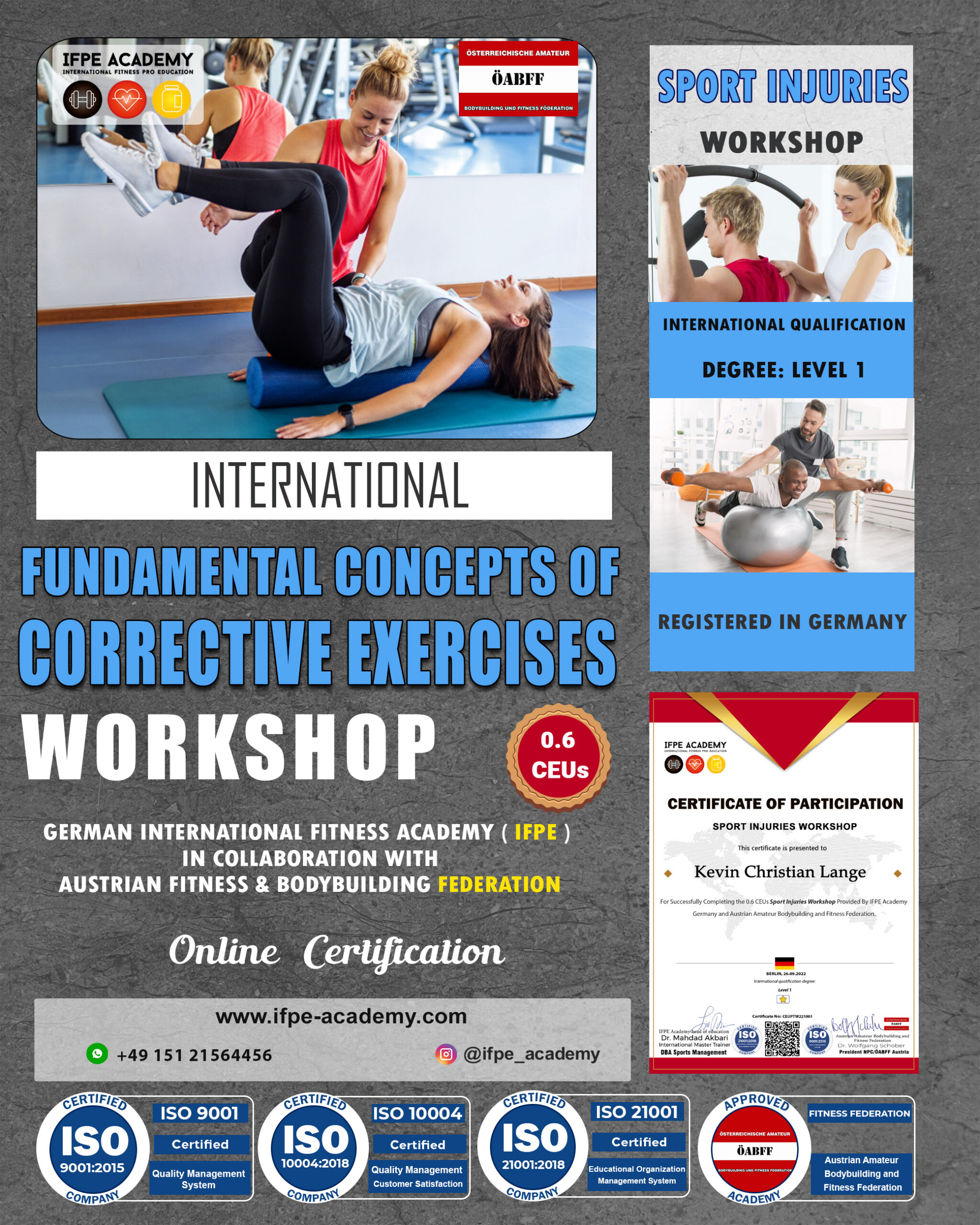Fundamental concepts of corrective exercises
International Course
WHAT IS PNF STRETCHING?
Developed at the Kabat-Kaiser Institute from 1946 to 1951 by neurophysiologist Herman Kabat and physical therapist Margaret “Maggie” Knott, PNF was initially developed for people with neurological conditions such as poliomyelitis. Later on, PNF expanded to treating musculoskeletal conditions.
The PNF stretching technique can also be used by athletes as well as non-athletes to improve performance. Studies have found that doing PNF stretches before exercise can boost performance in exercises such as jogging. However, PNF can decrease performance if done before high-intensity exercises such as weight-lifting and sprinting.
MEET YOUR INSTRUCTORS
Congress of design and programming (Iranian body building federation)
Sport effect of family mental (International center of conferences sustainable development of Islamic world science)
Sport psychology (International center of conferences sustainable development of Islamic world science)
ABOUT THE COURSE
What is Proprioceptive Neuromuscular Facilitation (PNF) in physiotherapy?
Proprioceptive Neuromuscular Facilitation (PNF) is a more advanced form of flexibility training. PNF involves both stretching and contracting (activation) of the muscle group being targeted in order to achieve maximum static flexibility. Physiotherapists use it to improve muscle elasticity and it has been shown to have a positive effect on active and passive range of motion
Actually, the term PNF stretching is itself a misnomer, but society has sort of adopted it, so let’s role with it for the moment (but just so you know it really is a technique, not a stretch).
Background
PNF was initially developed by physiotherapists as a method of rehabilitating stroke victims and refers to any of the several post-isometric relaxation stretching techniques. These are when a muscle group is passively stretched and then contracted isometrically against resistance, whilst it is in a stretched position. The technique calls for the muscle to be stretched again, passively throughout the increased range of motion gained on each repetition.
We suggest the use of a partner or your physio to provide the resistance against the isometric contraction. The person helping you can also facilitate the passive stretch through range as it is increased on each repetition. That being said, you can perform it without a partner or physio, but it tends to be more effective with the help of someone. You will see this technique being used in many clinical and non clinical settings.
WHAT YOU WILL LEARN FROM THIS COURSE
| CHAPTER 1:PRINCIPLE OF INJURIES PREVENTION |
|---|
| Type of Sport Injuries Prevention |
| Systematic Sport Injuries Prevention |
| Risk Factor of Sport Injuries |
| Important Factors in the Prevention Sport Injuries |
| CHAPTER 2: CLASSIFICATION OF INJURIES |
|---|
| A-Acute Injury: |
| Anterior Cruciate Ligament |
| Acute Ankle Injuries |
| Frozen Shoulder |
| B- Chronic Injury: |
| Tennis Elbow |
FURTHER DETAILS
FREQUENTLY ASKED QUESTIONS
When will I have access to the lectures and assignments?
Access to lectures and assignments depends on your type of enrollment. If you take a course in audit mode, you will be able to see most course materials for free. To access graded assignments and to earn a Certificate, you will need to purchase the Certificate experience, during or after your audit. If you don’t see the audit option:
- The course may not offer an audit option. You can try a Free Trial instead, or apply for Financial Aid.
- The course may offer ‘Full Course, No Certificate’ instead. This option lets you see all course materials, submit required assessments, and get a final grade. This also means that you will not be able to purchase a Certificate experience.
What will I get if I purchase the Certificate?
When you purchase a Certificate you get access to all course materials, including graded assignments. Upon completing the course, your electronic Certificate will be added to your Accomplishments page – from there, you can print your Certificate or add it to your LinkedIn profile. If you only want to read and view the course content, you can audit the course for free.
Is financial aid available?
Yes. In select learning programs, you can apply for financial aid or a scholarship if you can’t afford the enrollment fee. If fin aid or scholarship is available for your learning program selection, you’ll find a link to apply on the description page.
Why should I take this course again? I already took Financial Markets from Professor Shiller before!
Yes. In select learning programs, you can apply for financial aid or a scholarship if you can’t afford the enrollment fee. If fin aid or scholarship is available for your learning program selection, you’ll find a link to apply on the description page.








